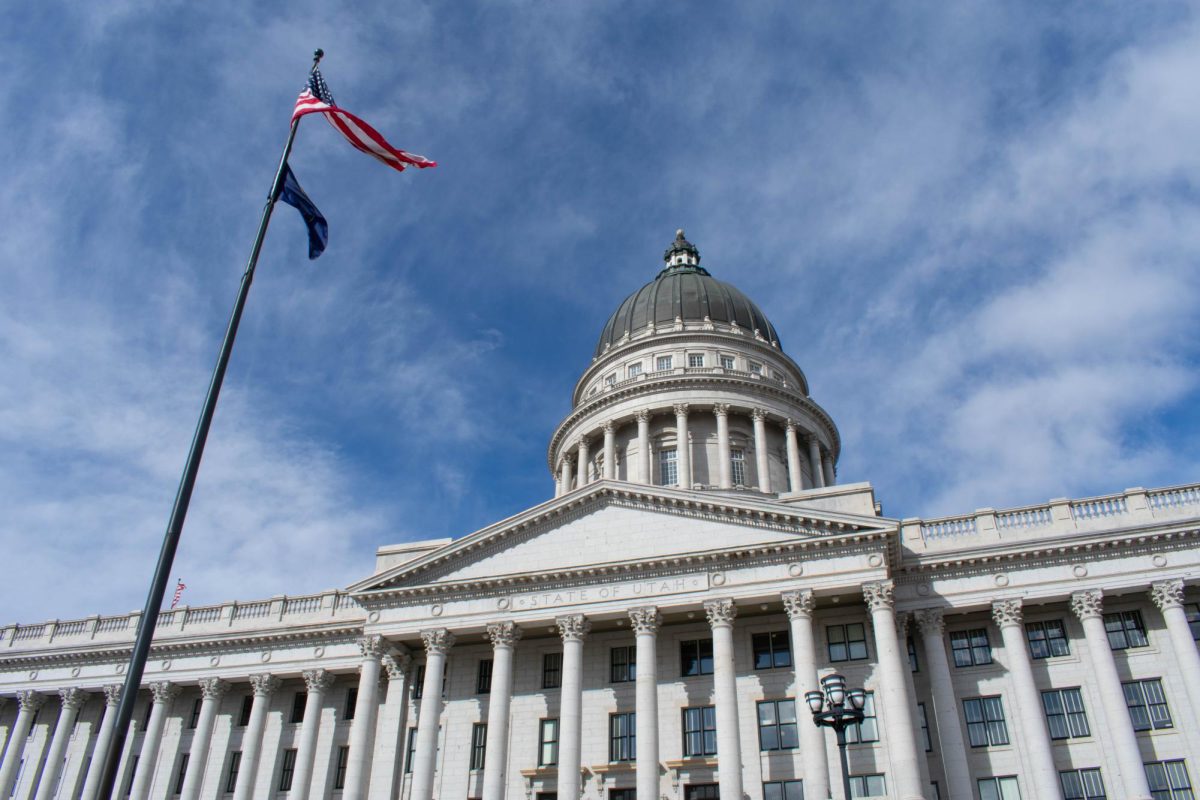The turbulent emotion brought on by parent custody battles often affects more than just the couple involved. Children caught in the middle of situations like these experience heavy impacts, as emotional well-being and mental health are often at risk. In cases where domestic violence is involved, they are also vulnerable to physical harm.
H.B. 272, also called “Om’s Law,” would create stricter requirements for experts and lawmakers who speak in court custody cases. The bill’s name comes from Utah teenager Om Moses Gandhi, who was tragically killed by his father in 2023 during a court-mandated, unsupervised visitation period.
It would also adjust safety measures during parent-child visitation. The new legislation would offer protection for children in vulnerable and potentially dangerous situations. This is a crucial step in writing different stories for children like Om.
Utah’s Family Court System
Leah Moses, Om’s mother, is very involved in Utah’s domestic violence and victim advocacy communities. She knows that her son’s death was preventable if only lawmakers had taken the necessary measures to protect him.
In response to reports of domestic violence in family court, the accused parent often employs alienation tactics to make their partner less believable. Tragically, this tactic works in diminishing claims of child abuse. When fathers specifically attempt to alienate their wives in court to diminish their allegations of abuse, the mother’s chance of losing custody increases from 26% to 50%. This statistic is tragic yet represents a system that has historically been a reality for women and children. Utah courts have silenced victims of abuse and negligently placed children such as Om in dangerous situations.
Kristine Campbell, a Utah pediatrician, spoke at a panel regarding H.B. 272. She reiterated support for the bill, citing her experience seeing children who are “physically or psychologically harmed as a result of poorly decided … custody arrangements.” Erin Jemison, a director at the Utah Domestic Violence Coalition, stated that feeling silenced by the state’s family court system is the number one issue they hear about from survivors.
Court-Ordered Visitation
Om Ghandi was left alone with a dangerous person, even after his mother’s pleas to family court professionals to keep him safe. Court records show more than a decade of disputes between Om’s mother and father, including two protective orders.
Those making decisions for children’s future in court are often not adequately trained in recognizing and combatting situations of child abuse or trauma. Attorneys have been known to discourage victims of domestic abuse from reporting violations to law enforcement, citing the risk of being perceived as difficult during a future custody or divorce case.
The system clearly does not prioritize child welfare or, when it does, the best interests of the child are assumed to be with their birth parent — regardless of allegations of abuse. Court-ordered visitation carries inherent risks. Through Om’s law, decision-makers’ qualifications in child welfare should be prioritized so that the best course of action can be taken.
Impact of Domestic Violence
Prioritizing visitation and custody rights in situations where domestic violence is involved lacks important safety measures. Whether it is with one parent or two, children deserve a safe and stable environment. Even if they are not the direct target of an abusive parent, abusive environments still affect a child’s well-being.
Children who reach adulthood after experiencing domestic violence in their homes may suffer long-term effects. They may be at higher risk for mental health conditions or experiencing abuse in future relationships.
In cases where domestic violence occurred or was alleged, court-ordered visitation should be supervised. Visits required to have supervision can provide important safeguards for a child, especially during the initial stages of a dispute where tensions are higher. Exclusively supervised visits are made more likely in the presence of expert testimonies. These can be from teachers, medical providers, social workers or therapists. One important aspect of H.B. 272 is its clause regarding the qualifications of these professionals in making such decisions.
By ensuring that the adults speaking for children in court are qualified, protected visitation orders that may have decided a different fate for Om can be made possible.
Restructuring family court and policies regarding custody arrangements is a crucial step in protecting child welfare. Keeping Utah’s children safe must be a main priority for legislatures and court officials. It is time that we reimagine what qualifies as a child’s best interests and empower survivors of abuse and their voices.
Utah’s family court system carries the important responsibility of prioritizing child welfare. Yet, in tragic cases like Om’s, it failed the person it was meant to protect. Increasing safeguards during parent custody battles are necessary to ensure the system fulfills its role. H.B. 272 is an important step in mobilizing the change that is needed.




